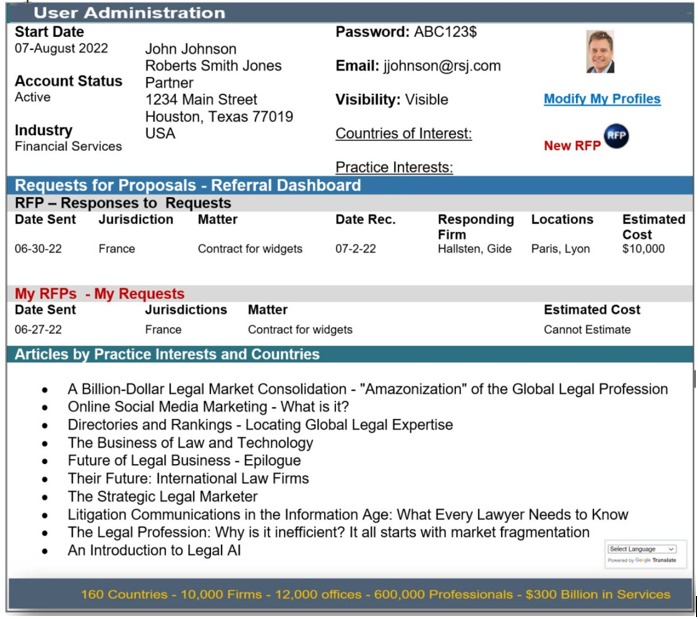Largest firms How do these retail and wholesale
market concepts relate to every law firm
whose practices are principally business and corporate and segmented? How can
AI be used to improve the level of services for very large firms?
For very large law firms whose practices are primarily business and
corporate-focused, the concepts of retail and wholesale market strategies can
be loosely applied to understand how these firms operate and how AI can be used
to enhance their services. Here’s an analysis of these concepts and how AI can
be leveraged to improve service levels:
Retail vs. Wholesale Market Concepts
in Large Law Firms
Retail Concept:
- In the context
of large law firms, the "retail" concept can be seen in how they
provide bespoke, high-touch legal services to individual clients or
smaller businesses. This involves personalized legal advice, tailored
solutions, and strong client relationships.
Wholesale Concept:
- The
"wholesale" concept applies to these firms when they provide
large-scale legal services to corporate clients, such as handling mergers
and acquisitions, corporate restructuring, or providing ongoing legal
counsel to multinational corporations. This involves leveraging their
extensive resources and expertise to manage complex and high-volume legal
needs.
Applying AI to Improve Services in
Large Law Firms
- Enhanced Client
Service:
- AI-Powered
Chatbots and Virtual Assistants: Implement AI chatbots to handle routine
client inquiries and schedule meetings, freeing up attorneys to focus on
more complex tasks. Virtual assistants can help in preparing documents,
conducting initial research, and managing schedules.
- Personalized
Legal Advice: Use AI to analyze client data and past cases to offer
personalized legal advice and predictive insights, enhancing the client
experience.
- Operational
Efficiency:
- Document
Automation: AI can automate the drafting and review of standard legal
documents, such as contracts and agreements, reducing time and improving
accuracy.
- Workflow
Automation: AI can streamline administrative processes such as billing,
invoicing, and case management, allowing lawyers to focus on billable
work.
- Data-Driven
Decision Making:
- Predictive
Analytics: AI can analyze large datasets to predict case outcomes,
identify trends, and provide strategic insights, helping lawyers make
more informed decisions.
- Risk
Assessment: AI can assess potential risks in corporate transactions,
compliance issues, and litigation, enabling proactive management and
mitigation.
- Client
Relationship Management:
- AI-Powered CRM
Systems: Deploy AI in CRM systems to track client interactions,
preferences, and history, ensuring personalized and efficient client
management.
- Client
Insights: Use AI to gather and analyze client feedback, helping firms to
understand client needs and improve service offerings.
- Enhanced Legal
Research:
- AI-Driven
Legal Research Tools: Implement AI tools that can quickly search and
analyze vast amounts of legal information, providing relevant case laws,
statutes, and legal precedents, saving time and enhancing the quality of
legal research.
- Compliance and
Risk Management:
- Regulatory
Compliance: Use AI to monitor changes in laws and regulations, ensuring
that clients are always up-to-date and compliant with the latest legal
requirements.
- Conflict
Checking: AI can efficiently perform conflict of interest checks,
ensuring that firms adhere to ethical standards and avoid potential legal
issues.
- Optimizing
Pricing Strategies:
- Dynamic
Pricing Models: Develop AI-driven dynamic pricing models that can adjust
based on the complexity of the case, client history, and market demand,
optimizing revenue.
- Cost Analysis:
Use AI to analyze cost structures and identify areas where efficiency can
be improved, reducing overhead costs and increasing profitability.
- Scalability and
Resource Allocation:
- Resource
Optimization: AI can help in optimizing resource allocation by matching
the right tasks to the right personnel based on their expertise and
availability, ensuring efficient use of resources.
- Scalable
Solutions: Develop scalable AI solutions for large-scale legal services
such as due diligence, contract review, and compliance checks, allowing
the firm to handle a higher volume of work without compromising quality.
Case Example: Large Corporate Law Firm
Scenario: A large corporate law firm provides legal services to
multinational corporations, handling complex transactions, regulatory
compliance, and high-stakes litigation.
AI Implementation:
- Client
Interaction: AI chatbots handle initial client inquiries, schedule
appointments, and provide basic information, improving client
responsiveness.
- Document
Review: AI tools automate the review of large volumes of documents during
due diligence processes, identifying key issues and reducing manual
workload.
- Predictive
Analytics: AI analyzes historical case data to predict outcomes of
litigation, helping the firm develop more effective legal strategies.
- Compliance
Monitoring: AI monitors regulatory changes globally, ensuring that the
firm’s clients remain compliant with evolving laws and regulations.
- Risk
Management: AI assesses potential risks in mergers and acquisitions,
providing detailed risk reports that guide decision-making.
By leveraging AI in these ways, large law firms can enhance their service
levels, improve operational efficiency, and increase revenues, while
maintaining the high standards and personalized service expected by their
corporate clients.
________________________________________
 Go To Questions about largest firms? - Who, What, Where and How?
Go To Questions about largest firms? - Who, What, Where and How?
GLL
Chat covers the global law and accounting professions from firms, networks,
consultants to alternative services, the media and all related services and
products. It also covers a range of law and accounting related subjects such as
ethics, organizations, and everything related to law and accounting.





 Software
Software Law
Law Legal
Legal






